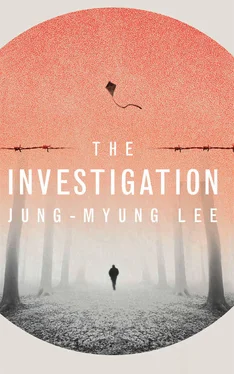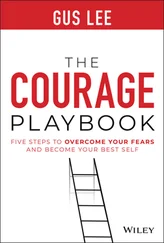go settle upon the slopes and the hills,
where, soft and mild, the sweet airs
of our native land smell fragrant!
And suddenly I remembered another song:
Carry me back to old Virginny,
There’s where the cotton and the corn and taters grow,
There’s where the birds warble sweet in the springtime,
There’s where the old darkey’s heart am long’d to go.
Something shifted, and everything started to fall into place. The Babylonian Hebrews had lost their country, the Italians had suffered under the Austrian Empire’s repression, and the Negroes had been enslaved in America — these were people whose homes were torn from them, and many became captive far away. And the men who would be singing this chorus were Korean prisoners, whose homeland had been wrenched away from them, too. Dong-ju habitually whistled ‘Carry Me Back to Old Virginny’, Midori played ‘Va, pensiero’ and she defended the violent, despicable Sugiyama, while Sugiyama was moved by Dong-ju’s poems. They were all linked. Somehow Dong-ju was involved in the selection of ‘Va, pensiero’. After all, The Titans of Classical Music , which I’d found in his box, mentioned Psalm 137, and Dong-ju was the only person in this prison with a Bible.
Dong-ju settled on the chair in the interrogation room shivering like a withered leaf. I took off his manacles. His wrists, scraped by the metal, were swollen and red. He placed his Bible on the desk and folded his thin, rake-like hands on top. I glared at the Bible like a cat eyeing a fish.
Dong-ju’s eyes flickered. He looked nervous; he was probably wondering why I’d told him to bring the Bible with him. Would it be burned?
I spoke first. ‘Nothing’s going to happen to your Bible. I’m not going to inspect it or burn it.’
He looked at me doubtfully.
I tried to assume a gentle expression. ‘I just want to read one part of it. You’re the only person with a Bible here. Can you lend it to me? It’ll just be for a moment.’
With both hands Dong-ju quietly pushed the Bible towards me. My heart began to pound when I got to the Book of Psalms. The pages rustled as I turned them. I swallowed. Psalm 137:
By the rivers of Babylon, there we sat down, yea, we wept, when we remembered Zion.
We hanged our harps upon the willows in the midst thereof.
For there they that carried us away captive required of us a song; and they that wasted us required of us mirth, saying, Sing us one of the songs of Zion.
How shall we sing the Lord’s song in a strange land?
These verses were underlined in pencil. I looked up.
Dong-ju pressed his lips together. ‘So you’ve read The Titans of Classical Music .’
I nodded.
He nodded, too. ‘The Hebrew slaves who were taken captive sang their old songs by the rivers of Babylon and wept, longing for Zion. The Babylonian keeper taunted them and demanded that they sing a Hebrew song. The Hebrews were in a trap. If they disobeyed, they would be killed; but if they obeyed, they would be dishonouring their homeland. This was what inspired Verdi in composing “Va, pensiero”. With this song, he was giving hope to the Hebrews that they would return to Zion with golden wings.’
I nodded slowly. ‘Midori isn’t the one who chose “Va, pensiero”, is she?’
‘Who, if not her?’
I stared at him steadily.
‘It doesn’t matter who chose which song. The sincerity of the song — now, that’s important.’
‘It looks like everything will unfold as you planned it. The singers will sing of returning and retaking their homeland. But the audience will be filled with high-level government officials and military leaders. What do you expect will happen, if Korean prisoners start singing about longing for their country?’
Dong-ju shook his head. ‘My only concern is for the best possible performance.’
I couldn’t believe my ears. ‘How naive you are! Or are you clever? You know they’ll figure out what this song means! “Va, pensiero” is a resistance song! You’re giving voice to the Korean independence movement!’
‘Whether you’re Korean or Japanese or Italian, the listener will feel the same sentiment.’
‘Using music and art to push for the independence of Korea is an overt rebellion!’ I cried. ‘In front of all those people! If they find out what you’re up to, everyone is going to be in serious trouble. What about the singers? What about everyone else involved in the concert? Are you trying to fuck with the warden and Maeda? Are you trying to get me and Midori into trouble?’
‘This song won’t harm anyone. I just want to hear a truly sincere song. Especially now.’ He looked at me listlessly, spent.
‘This is a mistake.’
‘Why would you say that?’
With a heavy heart I remembered the job the Empire had entrusted me with: censorship. ‘This seditious song will not be performed in front of distinguished guests.’
‘Will you cancel the concert?’ Dong-ju asked.
I couldn’t breathe, it was as though a cobweb were covering my face. I knew I had to stop this concert. But I couldn’t answer him. I dropped my head in despair. The choristers had put everything they had into their singing. They hadn’t realized they could produce such beautiful sounds; now music was their religion. Midori was practising late into the night. Everyone was content and carefree during rehearsals, even the other prisoners, who craned to listen to the singing that drifted faintly through the infirmary corridor, the work areas, the cells and the yard.
Dong-ju looked at me knowingly. I hated him for putting me in this position.
He smiled. ‘The old man in Cell 38 said to me, “If you have to bet on something, bet on hope.” He says you always reap more profits if you throw yourself behind a business that’s going well.’
I wanted to punish him for his brashness. If I allowed the concert to go ahead, everyone involved in it might face serious trouble. But maybe, just maybe, the audience would be moved and would applaud. Maybe the concert would be a success. I wanted to see for myself whether the Koreans’ singing could move a Japanese audience. Could I pin my hopes on something that foolish? I was a soldier; I didn’t want to go along with this precarious plan, putting Dong-ju and Midori in danger. I suddenly grew frightened. I realized I’d done everything Sugiyama had done until he died: I was now the censor, I escorted the chorus, I kept the underground library hidden; I was accomplishing everything he’d secretly wanted to. Would I get killed for my efforts, just like him?
ENDLESSLY SINKING PROMETHEUS
Dong-ju’s eyes appeared sunken in the dim light of the interrogation room. His face was dirty; he had been pulling a cart since dawn.
‘You look tired,’ I offered.
‘I’m no old man,’ he said, giving me a wide smile. ‘I’m only twenty-six and I’m still all right. I’m due at the infirmary tomorrow. I’ll feel better after an infusion.’ His eyes twinkled expectantly.
He was completely different with me than when he’d pulled the cart, covered in grime; when he’d stood blankly on the poplar hill; and when he’d crouched under the wall basking in the sun. Speaking of poetry reanimated him, like Lazarus from the grave; his voice was vibrant and his eyes emitted light.
He launched into a poem. ‘“Liver.” On a sunny rock on the shore / I will lay my damp liver flat to dry, / Like a rabbit fleeing the Caucasus mountains / I will circle around and guard my liver. / My pet eagle! / Come peck at it, without a single worry. / You will fatten / And I will lose weight, but, / Turtle! / I will never again fall for the sea god’s seduction. / Prometheus, poor Prometheus / A stone around his neck for the crime of stealing fire / Endlessly sinking Prometheus.’
Читать дальше












